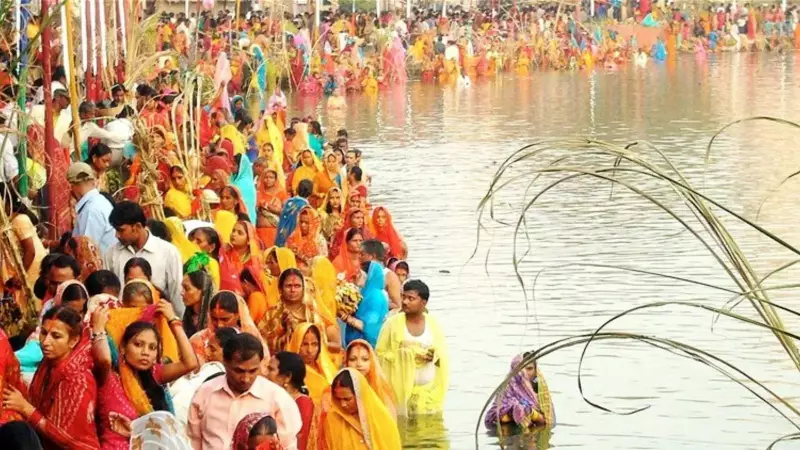
The sacred waters of the Yamuna River, which should be flowing pure and clean for the upcoming Chhath Puja celebrations, instead present a disturbing picture of environmental neglect. As thousands of devotees prepare to honor the Sun God through this ancient festival, the river's severe pollution levels have sparked urgent conversations about faith, public health, and environmental responsibility.
The Spiritual Dilemma: Tradition Meets Toxicity
Chhath Puja, one of Bihar's most significant cultural exports to Delhi, involves devotees offering prayers while standing in water bodies for extended periods. This year, however, the ritual poses unprecedented health risks as the Yamuna continues to choke under the weight of industrial waste, sewage, and toxic foam.
"The river that should be a source of spiritual purification has become a health hazard," notes environmental expert Rekha Gupta. "We're witnessing a collision between unwavering faith and alarming environmental reality."
Government Response: Too Little, Too Late?
The Delhi administration, led by Chief Minister Arvind Kejriwal, has initiated measures to clean specific ghats for the festival. Temporary solutions include installing bamboo barriers to contain foam and deploying boats to remove surface waste. However, critics argue these are merely cosmetic fixes that fail to address the root causes of pollution.
Beyond Chhath Puja: The Larger Environmental Crisis
The Yamuna's pollution problem extends far beyond the festival period. Despite numerous government initiatives and substantial funding, the river remains one of India's most polluted water bodies. The crisis highlights:
- Inadequate sewage treatment infrastructure
- Industrial waste discharge violations
- Agricultural runoff containing pesticides
- Growing urban population pressure
A Call for Sustainable Solutions
Environmentalists emphasize that temporary clean-up drives during festivals, while necessary, cannot substitute for comprehensive, year-round river management. The Chhath Puja season serves as an annual reminder of the urgent need for:
- Strengthened enforcement of pollution control laws
- Investment in modern sewage treatment plants
- Community awareness programs about river conservation
- Collaboration between state governments and local communities
As devotees prepare to celebrate their centuries-old traditions, the polluted state of the Yamuna raises fundamental questions about balancing cultural practices with environmental protection. The festival may come and go, but the need for lasting solutions to revive India's sacred rivers remains more pressing than ever.





